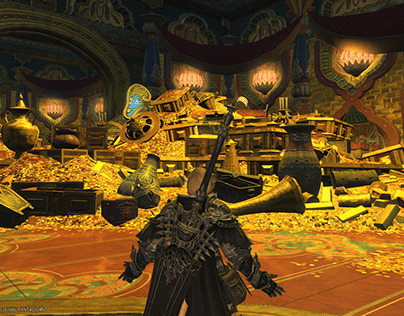
Learn Deep About FFXIV Gil
FFxiv Gil is the in-game currency used to purchase weapons, armor and equipment in-game as well as access higher level content such as Glamor Minions and Mounts.
Players can obtain FFxiv Gil through gathering, crafting and selling high-demand items on the market board - however this method can be challenging and time consuming to master.
Gathering
Money is an indispensable resource in Final Fantasy XIV, providing players with everything from glamor and minions to food and raiding gear. There are numerous ways for players to gain money - some dependable while others more risky - including daily duty roulettes, guildleves and FATEs as well as dungeons, selling items, gathering and gathering.
Gathering is an efficient and dependable way of making Gil in Final Fantasy XIV, yet it may be challenging at first due to unfamiliar nodes and items being priced accurately. To maximize profits from gathering at first of a new patch launch it may require considerable trial-and-error to reach optimal profitability levels.
Players can gain a steady supply of FFxiv Gil by collecting rare items and completing Treasure Maps - the latter provide access to dungeons which contain loot with rare or high value loot that players could benefit from acquiring.
Crafting
Gil is the primary currency in Final Fantasy XIV, making its value extremely sought-after among players looking for gear or glamour items to up their iLvl or to purchase minions and mounts - this in-game cash can add up fast!
On the Market Board, nearly any item can be sold for Gil. Certain things tend to sell better than others - for instance, GC seals can be used to purchase items such as dungeon gear and custom weapons.
Many players also find FFxiv Gil through quests, dungeons, duty roulettes, and other small ways such as teleportation services, airship and chocobo rides as well as equipment repairs.
Duty Roulettes
There are various methods of earning Gil in FFXIV. From crafting, gathering, treasure hunting or running dungeons - there's sure to be something suitable for every player. Running daily duty roulettes and working your challenge log are among the most efficient means of earning Gil.
These daily rewards offer players experience, Grand Company Seals, Cracked Novaclusters and Allagan Tomestones as well as bonuses based on job level and synced level when queuing for duties.
Leveling roulettes will place players randomly into level 50, 60, 70, 80 and 90 dungeons for leveling purposes. They provide valuable experience as well as materials needed for creating high-level gear. In addition, this roulette is useful in building secondary jobs or GC ranks.
Selling
Gil is used for various needs in Eorzea, such as airship and chocobo rides, equipment repairs and crafting of combat gear. FFxiv Gil can also be spent on glamour items, minions and mounts as well as in-game housing.
Gathering and crafting are among the best ways to earn Gil in ffxiv gil exploit, although crafting takes more time to set up successfully and can only be beneficial if the player enjoys doing it themselves.
Other methods include completing Duty Roulettes, weekly Challenge Log rewards and cultivating Thavnairian Onions. Players may also sell weapons and equipment on the Market Board; however these approaches tend to be less profitable than Retainer Ventures. Square Enix actively cracks down on RMT (Real Money Trading), wherein in-game goods or characters are sold for real cash.
Free Company Housing
Free Company Housing can bring several advantages not available elsewhere. Players can set up personal chocobo stables in their yards to train and strengthen birds, grow rare crops in gardens, and set up vendor NPCs within their homes to sell basic goods.
Every ward in Japan boasts over fifteen thousand apartments to choose from, each one costing 500,000 gil. Private chambers do not face automatic relinquishment after 35 days of inactivity; however, non-owner members may not access them directly.
Owners of Private Chambers and estates can also rent out spaces within their units to other members, creating another source of revenue before the new patch arrives. Renters will need to pay both deposits and rent-repayment fees but should they move out, they'll get it all back if they leave their homes.